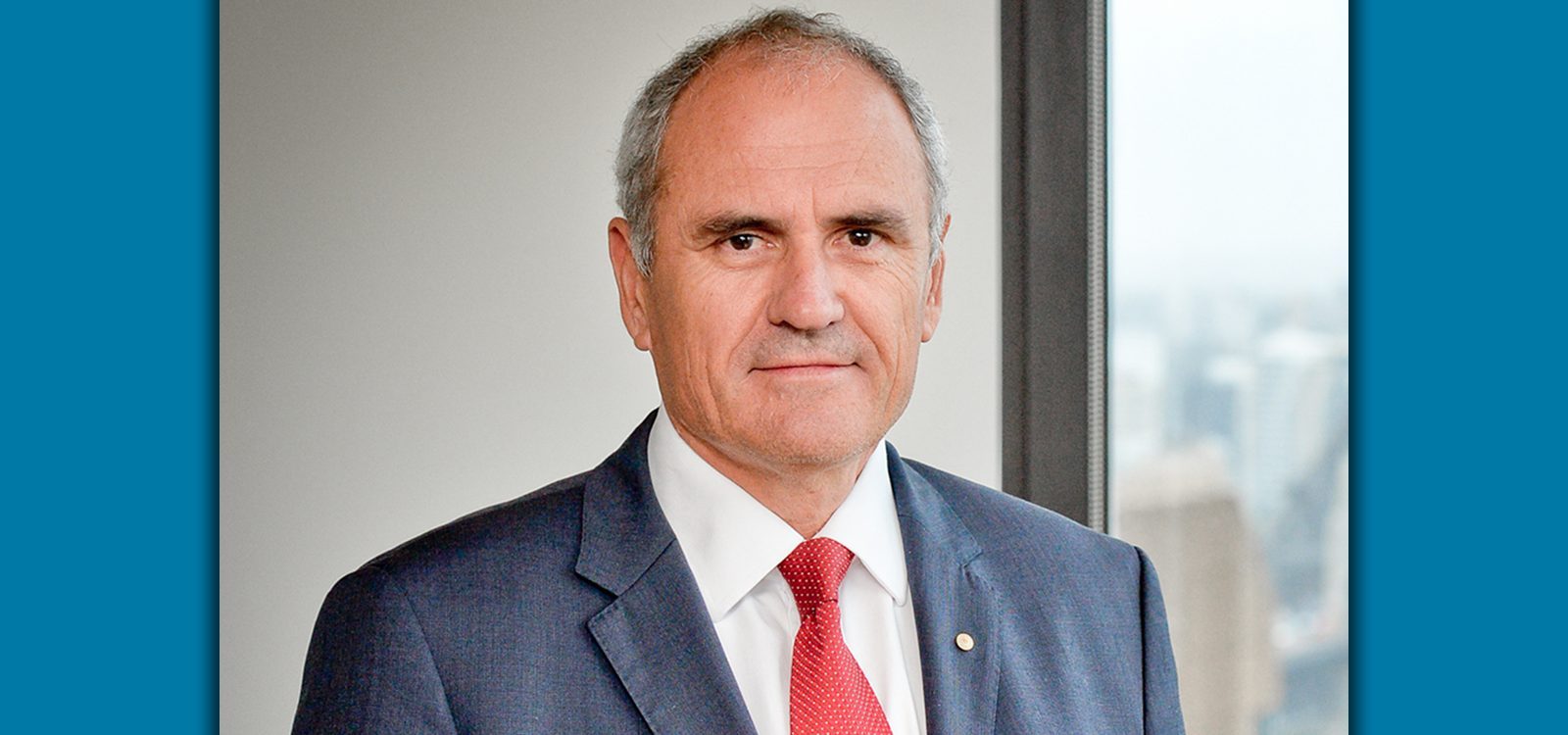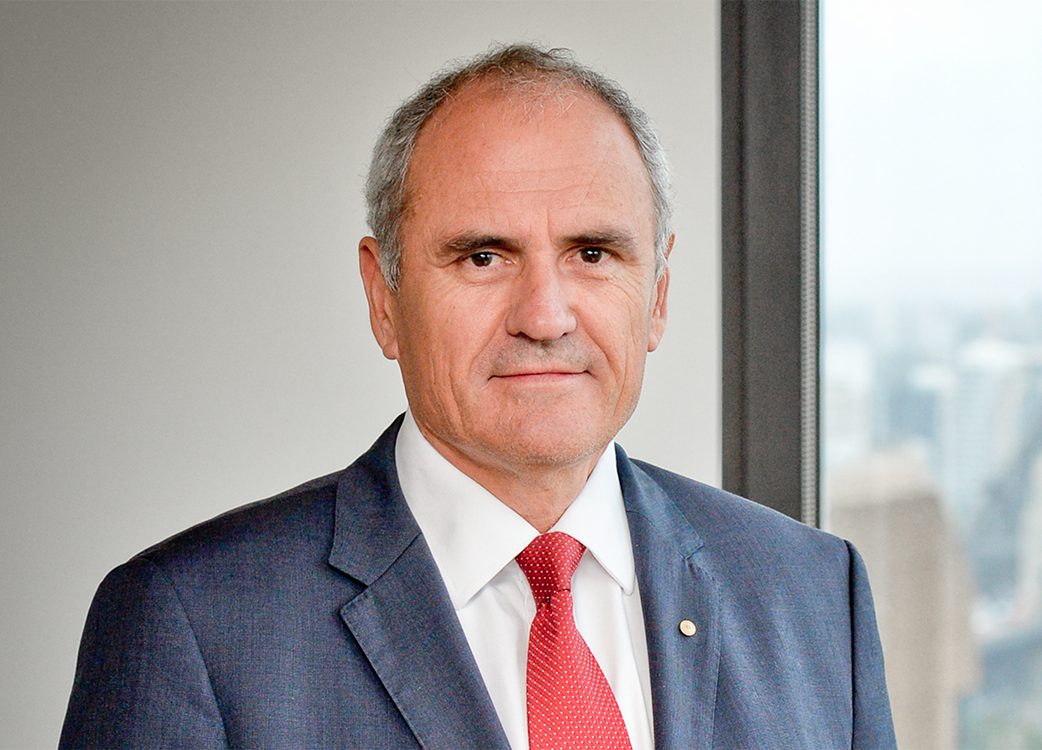
Summit Snapshot: Q&A with Dr Ken Henry AC
Ahead of delivering a keynote address at next month’s All-Actuaries Summit, influential economist and former public servant Dr Ken Henry AC discussed his life and career journey with Actuaries Digital.
Actuaries Digital: Could you tell me about yourself and your career highlights?
Ken: I grew up in country New South Wales with four siblings. Our father was a low-paid timber worker. Our mother was fully occupied looking after five children until after I left home when she went out to work in a 24/7 roadhouse. My mother’s parents hadn’t allowed her to finish high school. I think that’s why she insisted that all five of her children obtain a tertiary education.
For me, that meant studying economics and law at the University of New South Wales in the second half of the 1970s. After completing my Economics (Honours) degree, I thought I would become an academic economist, so I put my law studies on hold and completed a Ph.D. in economics. I started teaching and researching but found myself being drawn increasingly to policy issues. That’s why I moved to the Treasury late in 1984. I stayed for the best part of 27 years.
Along the way, I got to spend five years in Treasurer Paul Keating’s Parliament House office and 18 months at the Organisation for Economic Co-operation and Development in Paris. I was a member of the small team that put together Keating’s tax reform package that he took to the National Tax Summit in mid-1985. I chaired the Howard Government’s tax review that designed the GST system and the new family tax benefit system. Subsequently, I led Australian delegations at international meetings called to deal with the Asian Financial Crisis (1997-98). I was appointed Treasury Secretary in April 2001, also becoming an ex officio member of the RBA Board and the Board of Taxation.
As Treasury Secretary, I had the opportunity to lead the development of the first Intergenerational Report. In 2008 I was asked to chair the Rudd Government’s review into the tax and transfer payments systems. As that work commenced, we found ourselves having to respond to the Global Financial Crisis. After a decade as Treasury Secretary, I was asked to lead the development of a White Paper on Australia in the Asian Century for Prime Minister Julia Gillard.
I also joined the Board of NAB and subsequently the ASX. I became Chair of NAB in 2015, resigning in 2019 in the aftermath of the Financial Services Royal Commission. I am still on the Board of the ASX. I also chair a couple of start-up wildlife and environmental organisations. And I am on the Boards of Accounting for Nature Ltd and Cape York Partnership.
![]()
Actuaries Digital: What drew you to present at this year’s All-Actuaries Summit?
Ken: The topic (‘the challenge of doing the right thing’). I was asked to reflect on what one should do, especially in a leadership position, when things go wrong. I’m sure most of us don’t want to have to think about this question, but I’ve had to. I won’t claim to have all the answers, not by a long stretch. But I am interested in the discussion.

Actuaries Digital: In 2004 while Treasury Secretary, you recommended a national emissions trading scheme (ETS) to thwart climate change, however, your advice at the time was ignored. In recent times, your recommendations have since been praised. What led you to recommend the scheme?
Ken: I’m not sure ‘ignored’ is the right word. Prime Minister John Howard had made a commitment not to develop an emissions trading scheme some time before I had the opportunity to recommend it to him formally. And it wasn’t just ‘my idea’. Senior policy people in Canberra had agreed years earlier that this is what Australia should ultimately do. My perspective has been driven by an acknowledgment that, following Kyoto, Australia is always going to be committed to capping national greenhouse gas emissions.
Any action to reduce emissions below ‘business as usual’ will have a short-term economic cost. An obvious question, then, is what is the least economically damaging way of reducing baseline emissions to meet the national cap? The answer is an ETS. This is very simple economics. Remarkably, it has been made to appear much more complex politically.
I had another opportunity to put the idea of an ETS in front of Prime Minister Howard late in 2006. This time, he was persuaded. Following the 2007 Federal Election, we had bipartisan support for an ETS in every political jurisdiction in the country. It is instructive that, even so, our politicians managed to stuff things up within just a few years. In 2007, we were seen as global leaders in responding to the challenge of climate change. Today, we are seen very differently.
![]()
Actuaries Digital: In 2008, you led Australia’s Future Tax System Review Panel, charged with examining all aspects of the Australian tax system with a view to reform. What were the key findings from this?
Ken: The tax review found that we had managed to make our tax system more complex than anybody could possibly imagine, delivering very poor outcomes with respect to economic incentives and fairness. There are only a handful of tax bases; labour, capital, land, and other natural resources. You can also apply taxes to consumption, and you can distinguish between the so-called ‘normal’ return to capital and pure profits. But that’s about it. Yet we have more than 100 separate taxes applying to this handful of bases, levied by three different levels of government across nine jurisdictions. No citizen could possibly have any idea what impact this mess is having. Our elected political representatives certainly don’t.
Over time, Australia is going to have to place less reliance on income taxes and more reliance upon the tax bases that are more robust and cause less economic damage. When I started work in the Treasury late in 1984 there was a lot of concern that changing the tax mix in this direction might be smart from a narrow economic perspective, but would be unfair, especially to lower-income groups. But more recently, most analysts have come to accept that the supposed trade-off between efficiency and equity is not straightforward.
Firstly, a tax system that delays the generation of income and wealth might disadvantage higher-income people, but it also puts at risk the ability of the state to look after the interests of the most disadvantaged in society. Secondly, there is a serious intergenerational equity issue here that had not been given enough consideration in earlier times. We need a tax system that encourages faster, and more sustainable, economic growth in order not to shift too much of the public debt burden onto future generations.
![]()
Actuaries Digital: What’s next for Dr Ken Henry AC?
Ken: Who knows? Life is an adventure. In recent years I have been devoting an increasingly large proportion of my time to wildlife and environmental causes. I see that continuing. There is an enormous amount to do if we are to ensure that our grandchildren (and I now have two) are going to have the opportunity to enjoy many of the things that my generation simply took for granted. I know that’s been true for a long time now, but I see an opportunity to try new approaches that utilise market instruments to achieve environmental improvements long considered too hard to tackle. I guess we’ll see.
![]()
Find out more and register for the 2022 All-Actuaries Summit.
CPD: Actuaries Institute Members can claim two CPD points for every hour of reading articles on Actuaries Digital.







